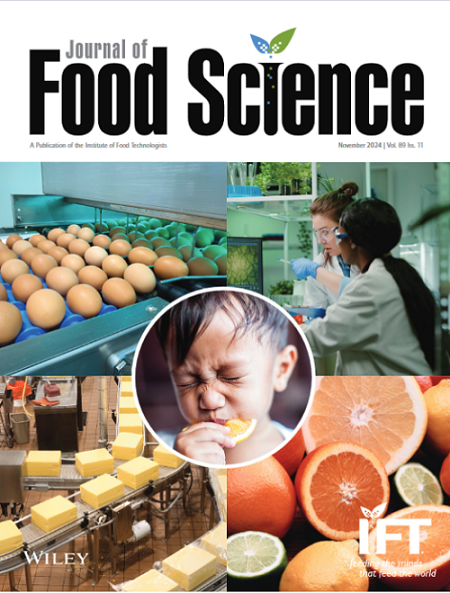Optimizing extraction of Citrus aurantium leaves and assessing immunomodulatory effects of the extract on BALB/c mice PBMCs
Abstract
Plant extracts, rich sources of biomolecules, exhibit potent antioxidant activity and diverse health benefits. This study explored the bioactive potential of Citrus aurantium L. (bigarade) leaf extract (CALE) through focused investigations. A conventional water bath was first used to maximize the yield of phenolic compounds extracted from bigarade leaves. Key parameters, including extraction time, particle size of the ground leaves, temperature, solvent type, and solid-to-liquid ratio, were varied to evaluate their impact on the extraction efficiency. Longer extraction times and smaller particle sizes resulted in higher extraction yields. The optimal extraction conditions for maximizing both total phenolic compounds and anti-radical activity were identified as 80°C, 100% distilled water, with a solid-to-liquid ratio of 1:40. Subsequently, the immunomodulatory effects of bigarade leaf extract on mice peripheral blood mononuclear cells (PBMCs), including cytotoxicity, cell viability, and the production of seven cytokines, were examined. CALE extract at concentrations below 250 µg/mL did not significantly affect PBMCs proliferation or viability, thus highlighting its safety profile at low concentrations. However, CALE markedly elevated the production of the anti-inflammatory cytokine IL-4 at a concentration of 50 µg/mL, while concurrently reduced levels of the proinflammatory cytokine IFN-γ. Additionally, CALE treatment led to a significant decrease in IL-17A secretion in the culture supernatants of PBMCs, accompanied by an increase in IL-10 levels, both of which showed a dose-dependent response with increasing CALE concentrations. Our findings underscored the valuable bioactive properties of C. aurantium leaves and their potential applications in functional foods and therapeutic settings for promoting human health and well-being.
Practical application
This study investigates the potential of Citrus aurantium L. (bigarade) leaf extract as a natural source of bioactive compounds with promising antioxidant and immune-regulating properties. The antioxidant activity of the extract could benefit the food and cosmetic industries by enhancing product stability and promoting skin health. On the other hand, its ability to modulate the immune responses suggests possible applications in formulations, including functional foods and herbal supplements, aimed at supporting immune balance, and managing inflammation-related conditions. The optimal experimental conditions of extraction, as identified in this study, can be scaled up for industrial applications, ensuring efficient production of bioactive-rich extracts.

 求助内容:
求助内容: 应助结果提醒方式:
应助结果提醒方式:


